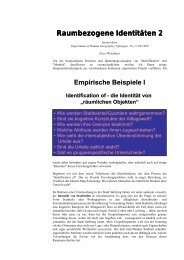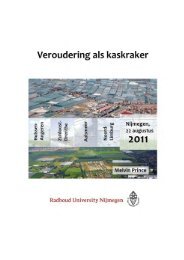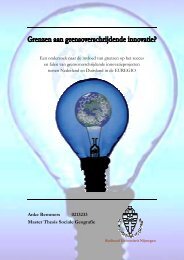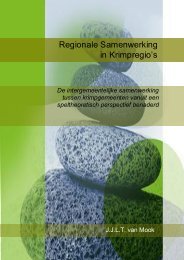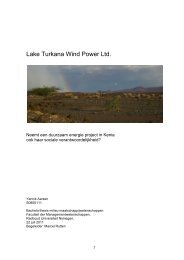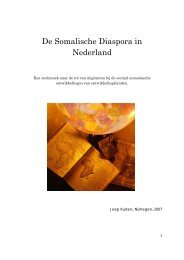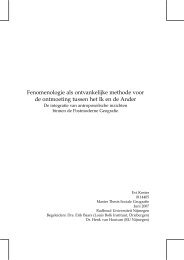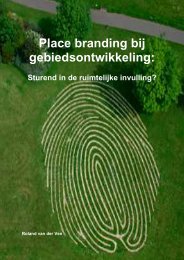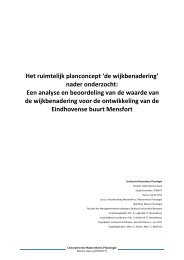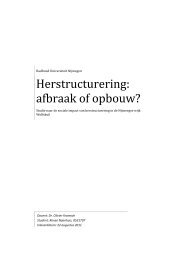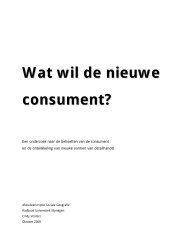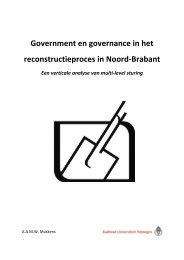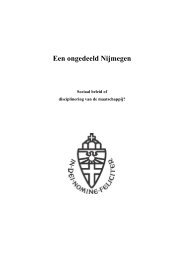Trading with the enemy in Mitrovica, Kosovo. - RUhosting
Trading with the enemy in Mitrovica, Kosovo. - RUhosting
Trading with the enemy in Mitrovica, Kosovo. - RUhosting
Create successful ePaper yourself
Turn your PDF publications into a flip-book with our unique Google optimized e-Paper software.
August 2009 <strong>with</strong> violent protests aga<strong>in</strong>st EULEX <strong>in</strong> Prist<strong>in</strong>a 20<br />
. Albanians have what <strong>the</strong>y want now –<br />
<strong>in</strong>dependence – and while before this all <strong>the</strong> <strong>in</strong>ternational rules were seen as necessary costs of<br />
<strong>in</strong>dependence, now <strong>the</strong>y feel <strong>the</strong>y have paid enough and want to get rid of <strong>the</strong>se rules and regulations. The<br />
radical movement “vetendosje!” (self-determ<strong>in</strong>ation!) seems to have a grow<strong>in</strong>g support (field notes). By<br />
grant<strong>in</strong>g <strong>in</strong>dependence <strong>the</strong> biggest part of <strong>the</strong> <strong>in</strong>ternational community's carrot for motivat<strong>in</strong>g Albanians <strong>in</strong><br />
favour of a multi-ethnic state has been eaten. This could mean Albanian support for a multi-ethnic state<br />
might start shr<strong>in</strong>k<strong>in</strong>g <strong>in</strong> <strong>the</strong> near future.<br />
5.4.2. Serbian approach to multi-ethnicity.<br />
Serbia's relation <strong>with</strong> Europe and <strong>the</strong> rest of <strong>the</strong> <strong>in</strong>ternational community is very different from that of <strong>the</strong><br />
<strong>Kosovo</strong> Albanians and Serbia's political goals are also much different. This reflects <strong>in</strong> <strong>the</strong>ir policies.<br />
Especially before <strong>the</strong> declaration of <strong>in</strong>dependence by <strong>Kosovo</strong> and <strong>the</strong> follow<strong>in</strong>g recognition of this<br />
<strong>in</strong>dependence by 62 states (as of 12-10-2009) 21<br />
, it was <strong>in</strong> Serbia's best <strong>in</strong>terest to prove that <strong>Kosovo</strong> cannot<br />
protect m<strong>in</strong>orities or m<strong>in</strong>ority rights and hereby show <strong>the</strong> world that it cannot make <strong>Kosovo</strong> an <strong>in</strong>dependent<br />
state. Now, after <strong>the</strong> <strong>in</strong>dependence and it's recognition by about 1/3 of <strong>the</strong> worlds UN recognised states,<br />
Serbia is still fight<strong>in</strong>g <strong>the</strong> <strong>in</strong>dependence by any means. One of <strong>the</strong> tactics for this is obstruct<strong>in</strong>g <strong>in</strong>ter-ethnic<br />
relations and <strong>in</strong>tegration of Serbs <strong>in</strong>to Kosovar society. The ma<strong>in</strong> victims of this appear to be <strong>Kosovo</strong> Serbs<br />
<strong>the</strong>mselves.<br />
Respondent #10, a Serb from Belgrade now liv<strong>in</strong>g <strong>in</strong> Prist<strong>in</strong>a tells how he, and his family was afraid to go to<br />
<strong>Kosovo</strong> for <strong>the</strong> first time because of <strong>the</strong> way <strong>Kosovo</strong> is presented <strong>in</strong> <strong>the</strong> Serbian media. He also noticed that<br />
Serbs from <strong>Kosovo</strong> are <strong>in</strong> general a lot more nationalistic than Serbs from Serbia proper. His explanation for<br />
this is that <strong>the</strong>y are said to be, by Belgrade, to be '<strong>the</strong> defenders of <strong>Kosovo</strong>': “They are used and abused by<br />
Serbia”. Serbs are used as political tools by Belgrade, he cont<strong>in</strong>ues when he gives <strong>the</strong> example of 250.000<br />
Serbian refugees from <strong>the</strong> war <strong>in</strong> Croatia who were not allowed to settle <strong>in</strong> Serbia proper but had to go to<br />
<strong>Kosovo</strong>. He also mentions several times how people who want to cooperate and do someth<strong>in</strong>g constructive<br />
are crucified by <strong>the</strong> media and that is how <strong>the</strong>y are controlled. “The public op<strong>in</strong>ion and policy is ‘<strong>Kosovo</strong> is<br />
Serbia’, but <strong>in</strong> fact young people <strong>in</strong> Serbia say “I don’t give a fuck about <strong>Kosovo</strong>”. The tactic of <strong>the</strong> Serbian<br />
Government is “divide and conquer”. People who want to do someth<strong>in</strong>g constructive are crucified by <strong>the</strong><br />
media. That is how people who want to cooperate are controlled.”. Respondent #12, an Albanian from<br />
<strong>Mitrovica</strong> work<strong>in</strong>g at an NGO says <strong>the</strong> same th<strong>in</strong>gs. He accuses <strong>the</strong> Belgrade regime of abus<strong>in</strong>g <strong>the</strong> Serbian<br />
IDP community for its own goals. “They pressure and <strong>in</strong>timidate people for <strong>the</strong>ir own purposes. They tell<br />
Serbs <strong>in</strong> <strong>Kosovo</strong> not to accept payments from <strong>the</strong> Kosovar government. They should let go, Serbs have to<br />
<strong>in</strong>tegrate <strong>the</strong>mselves <strong>in</strong> <strong>Kosovo</strong>”. He believes politics can still have <strong>the</strong> biggest <strong>in</strong>fluence on positive change,<br />
20<br />
EU Observer. " Violent protests aga<strong>in</strong>st EU mission <strong>in</strong> <strong>Kosovo</strong>". 26-08-2009. Visited on 11-10-2009.<br />
http://euobserver.com/13/28583<br />
21<br />
Who recognised Kosova? visited on 12-10-2009. http://www.kosovothanksyou.com/<br />
62



